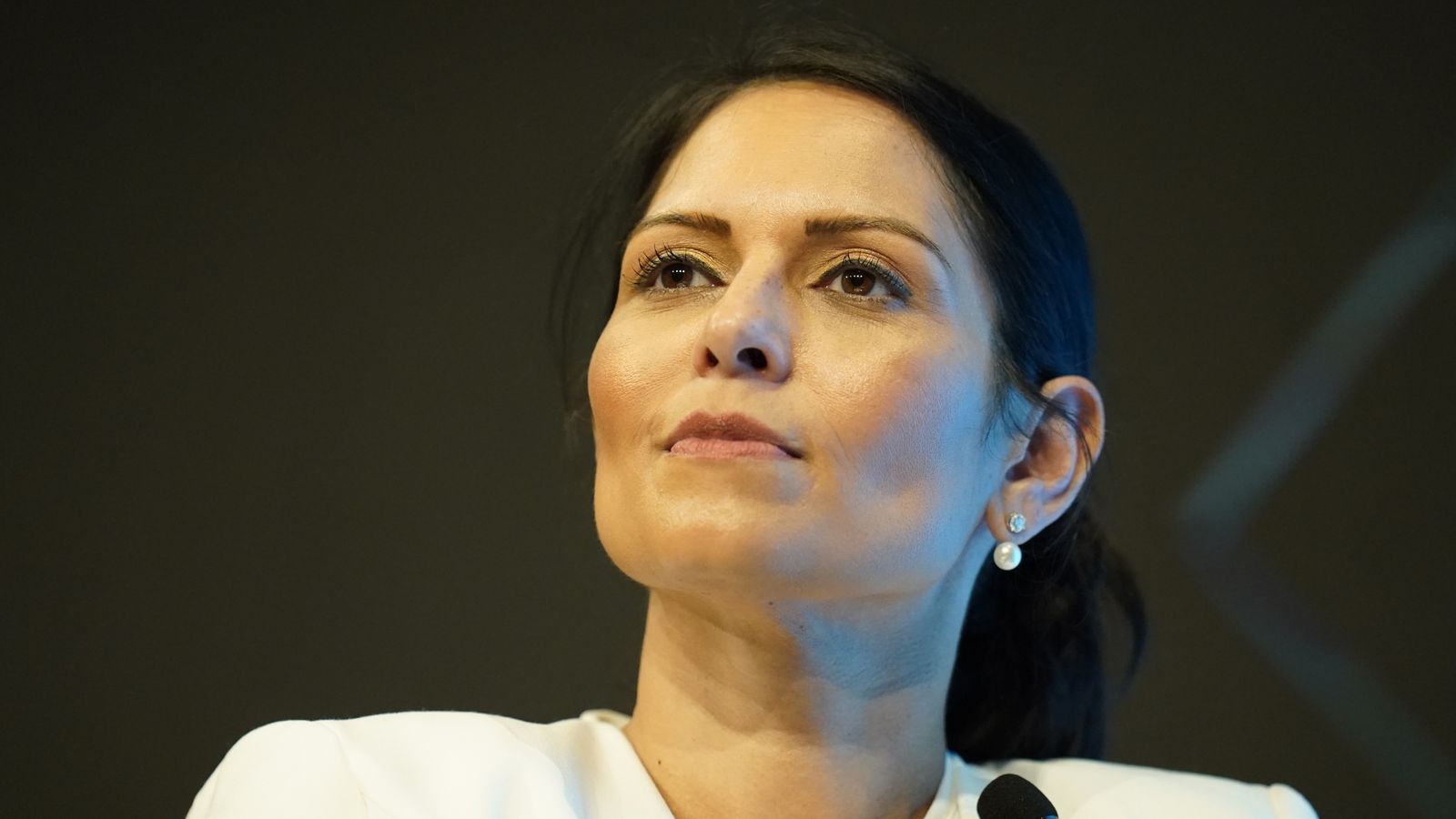Facebook and Instagram would be guilty of a “grotesque betrayal” of children if the platforms roll out encrypted messaging without safeguards against abuse, the home secretary has said.
Priti Patel urged Meta – which also owns WhatsApp – to introduce safeguards before extending end-to-end encryption later this year.
Current plans for the technology would see messages accessed and read only by the sender and recipient, in a security feature to protect personal data and privacy.
But critics, including the Home Secretary, have raised concerns that police and Meta would not be able to flag harmful or worrying content.
She fears the move will prevent police from investigating child abuse.
Writing in the Telegraph, Ms Patel said: “The consequences of inadequate protections – especially for end-to-end encrypted social media platforms – would be catastrophic.
“A great many child predators use social media platforms such as Facebook to discover, target and sexually abuse children. These protections need to be in place before end-to-end encryption is rolled out around the world.”
Facebook defends itself after handing over chat messages to US police investigating abortion
Facebook owner Meta reports first ever revenue drop amid lower advertising sales and competition from TikTok
Amazon files lawsuit against 10,000 Facebook groups designed to create fake reviews
She insisted “a way forward can be found” as she urged the tech giant to work with the Home Office to introduce protections.
“It would be completely unacceptable – indeed a grotesque betrayal – for anyone to say this is all too difficult or that it doesn’t really matter,” Ms Patel added.
“But while some things are more important than profits, it is actually in the financial interests of technology companies that the public should have confidence that their products and services will not be used to hurt children.”
She said the GCHQ proposals showed scanning could “reduce the prevalence of child sexual abuse online while maintaining the privacy benefits of end-to-end encryption.”
However, the platform called this “intrusive”.
Subscribe to the Daily podcast on Apple Podcasts, Google Podcasts, Spotify, Spreaker
A Meta spokesman said: “We have no tolerance for child exploitation on our platforms and are focused on solutions that do not require the intrusive scanning of people’s private conversations. We want to prevent harm from happening in the first place, not just detect it after the fact.
“We continue to work with outside experts and law enforcement to help keep people safe online.”







